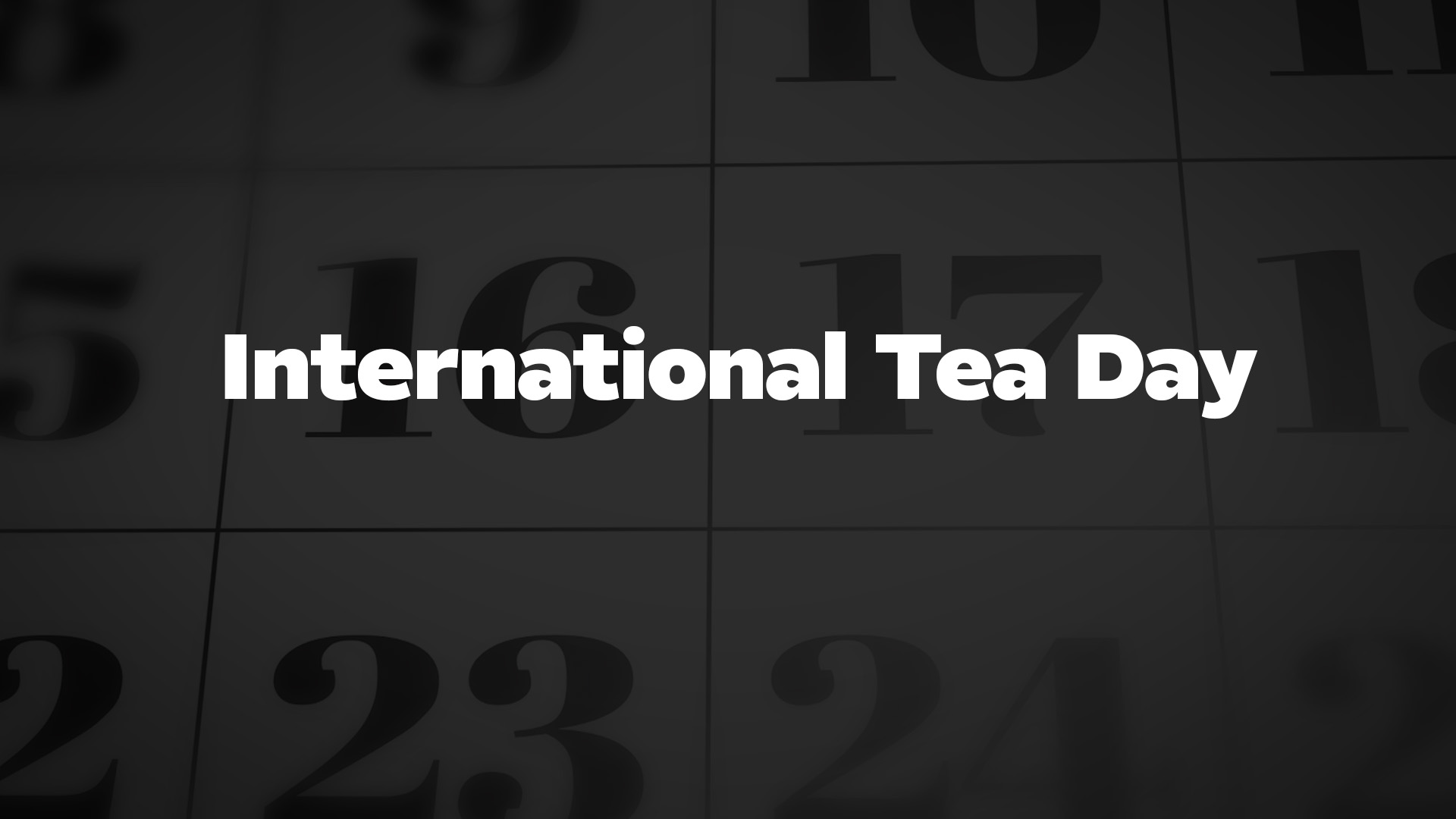International Tea Day is a day designated to celebrate global tea culture and raise awareness of the health benefits associated with drinking tea.
#HASHTAGS
#InternationalTeaDay
International Tea Day is celebrated annually on May 21st.
| Year | Date | Day |
|---|---|---|
| 2022 | May 21 | Saturday |
| 2023 | May 21 | Sunday |
| 2024 | May 21 | Tuesday |
| 2025 | May 21 | Wednesday |
| 2026 | May 21 | Thursday |
| 2027 | May 21 | Friday |
| 2028 | May 21 | Sunday |
| 2029 | May 21 | Monday |
| 2030 | May 21 | Tuesday |
| 2031 | May 21 | Wednesday |
| 2032 | May 21 | Friday |
| 2033 | May 21 | Saturday |
| 2034 | May 21 | Sunday |
| 2035 | May 21 | Monday |
